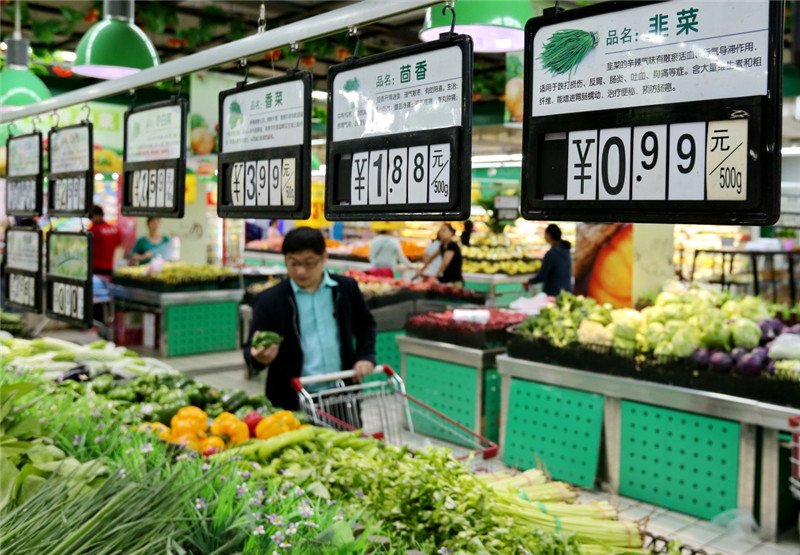China's consumer price index (CPI), a main gauge of inflation, rose 2.9 percent year on year in 2019, within government target of 3 percent, official data showed Thursday.
The growth picked up from 2.8 percent in the first 11 months, and was above the 2.1-percent annual increase in 2018, according to the National Bureau of Statistics.
In December, the CPI climbed 4.5 percent year on year, unchanged from that in November.
The hike was mainly driven by food prices, which soared 17.4 percent year on year last month, contributing 3.43 percentage points to the increase in December.
As government measures at national and local levels to restore hog production started to take effect, the soaring trend of pork prices affected by the African swine fever and cyclical factors has softened in the past month.
Pork prices surged 97 percent year on year in December, slowing from the 110.2-percent growth seen in November. Prices of other kinds of protein including beef, mutton and poultry saw slower growth last month.
Non-food prices gained 1.3 percent last month, faster than the 1-percent growth in November, the bureau said.
The CPI in urban and rural areas posted a year-on-year growth of 4.2 percent and 5.3 percent, respectively.
The core CPI, which excludes food and energy prices, ticked up 1.4 percent year on year in December, flat with that in November.
Thursday's data also showed that China's producer price index, which measures costs for goods at the factory gate, dropped 0.3 percent year on year in 2019.


